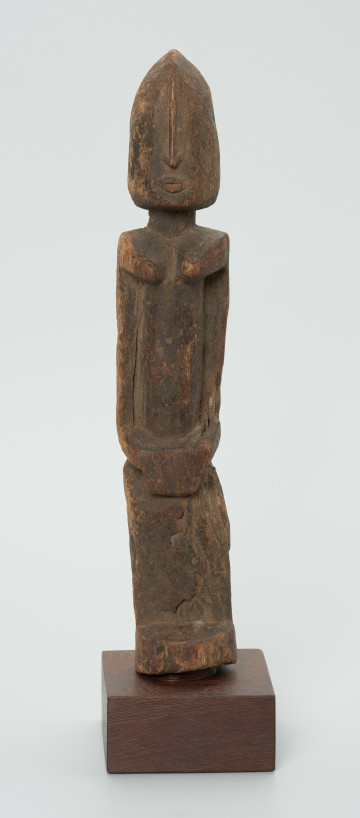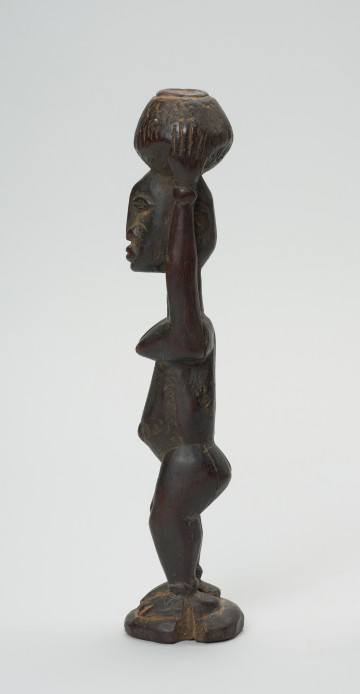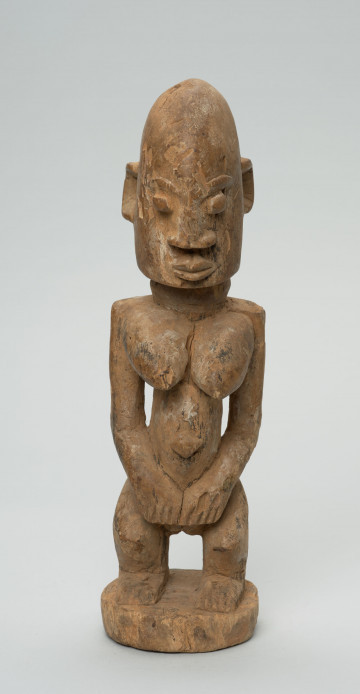
Figure - woman
między 1951 — 2000
National Museum in Szczecin
Part of the collection: Collection of Dogonian art
The Dogon myths about the beginning of the universe are very complicated and passed down orally in a very poetic way. According to their mythology, in the beginning there was nothingness. There was only a whirlpool, a movement resembling a conical spiral, and the wind, which is symbolised by a braided fan used to fuel the fire, woven using the braid technique, twisted in a spiral. At the centre of the world was minne pilu (white earth). Amma appeared at a point called the place where Amma emerged (Amma yalo wo puzo). This means that the said point is one of the formative moments of the world, not the beginning or the primeval cause. This moment is depicted in the shrines of the Dogon as a circle with a circular point inside. Life was placed in the grains by the word, and this situation is compared to fermentation. In Amma's womb the grains fermented and then sprouted. It opened up the world and allowed it to develop in the four directions of space. The event is illustrated by the sign of fermentation consisting of a circle around which are symmetrically placed four spheres. It is reminiscent of the location of the main pot supported by four smaller ones, as is usually the case when brewing traditional millet beer. When the god Amma arose and the world was opened, he proceeded to create. He devised what he wanted the world to look like and drew it, for the basis of all creation is thought, and a sign is its graphic image. The result of his first work was the seed of sene (acacia), the first plants. It was oval, comparable to a hen's egg, and contained the four elements and the principles of all beings. It was larger than all other grains. The Dogon claim that Amma first created the sky then the earth and the acacia and only then man.
Ewa Prądzyńska
Author / creator
Dimensions
cały obiekt: height: 51 cm, width: 7 cm
Object type
figure
Creation time / dating
Creation / finding place
Identification number
Location / status

między 1951 — 2000
National Museum in Szczecin

między 1951 — 2000
National Museum in Szczecin

między 1951 — 2000
National Museum in Szczecin
DISCOVER this TOPIC
Castle Museum in Łańcut
DISCOVER this PATH
Educational path